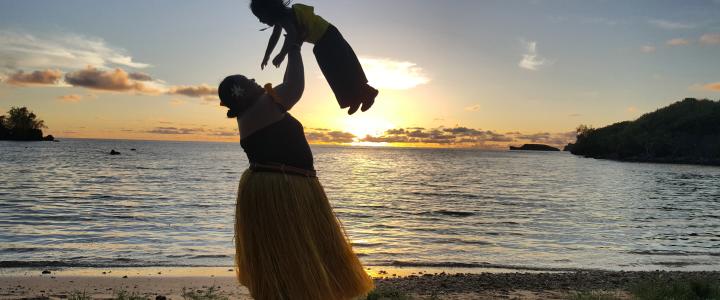
Where would we be without our mothers? They have dropped us off at school with lunch pails filled so we don’t go hungry. They’ve driven us to our sports games or extracurricular activities after a long day at work. They’re always there to bandage our wounds and cheer us on. They have gone above and beyond to ensure we have the best they can offer. When we look at mothers, we more often than not see women who brave the hurdles of life with unmatched grace and drive. So, while our island’s environment and societal structures have surely changed as time has gone on, the strength, power, and spirit of our island’s mothers remains unchanged.
In ancient times, women were the pioneers and leaders of the island. Guam had once been comprised of clans grouped into a caste system where some families held more power than others. While many factors contributed to the rank of the clan, such as the resources and size of the family, the status of individuals in society was determined by who their mother was. Historical recordings of the CHamoru people have shown the women to be in charge of their family’s wealth, governance, and education. They were charged with arranging marriages, building villages, and assuming large and active roles in public affairs. Such decisions were often carried out by the clan’s maga’håga, otherwise known as the first daughter of the highest ranking clan member. The maga’håga always had the final say in matters dealing with the clan. This matrilineal society often confounded other nations who were patrilineal, where men typically held positions of power.
In addition to holding power in family and public affairs, mothers have often served as caretakers and leaders that teach future generations their culture, language, and heritage. During the darker days of colonization when men were targets of murder and colonizers sought to dilute CHamoru blood by interbreeding with the women, the tasks of a mother had never been more crucial. They would keep the spirit of Guam alive by teaching invaluable skills like weaving, farming and cooking, and speaking the CHamoru language. It is because of their power in society and knowledge of their island and its people that the CHamoru culture is as strong as it is today. For thousands of years CHamoru mothers have been long standing pillars of strength, wisdom, love, and dedication. Such qualities have only grown since then and continue to be reflected in the countless women we are blessed to share this island with today.













